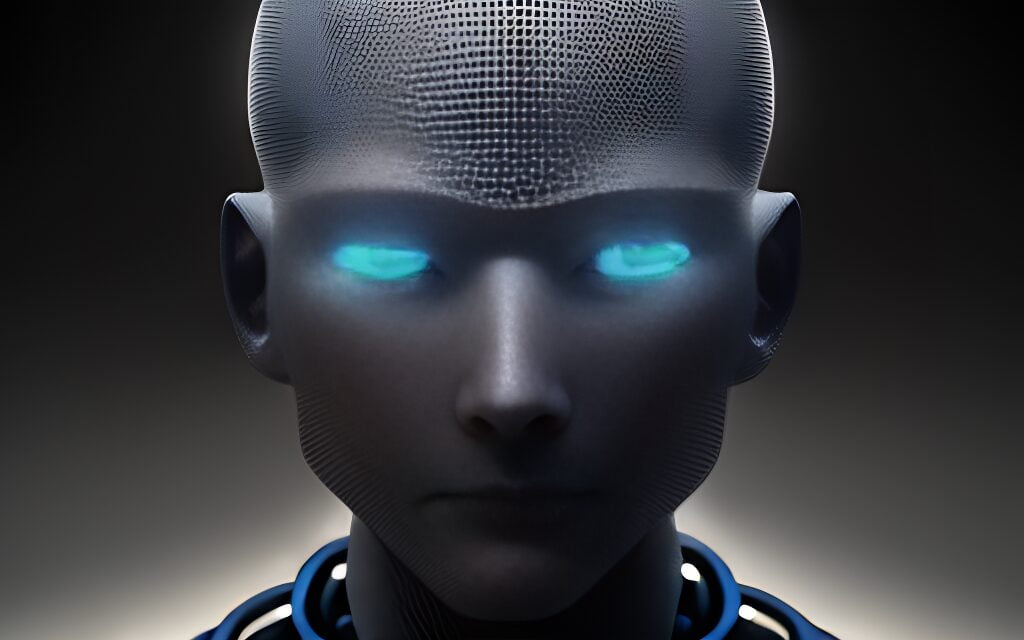In recent years, the world of artificial intelligence (AI) has made remarkable strides in various domains. AI has the potential to transform industries, streamline processes, change the way we create content and even how we approach web design. The question that arises, however, is whether AI will replace content writers entirely. While AI has certainly revolutionized content generation, at the core of good writing remains a distinctly human element that AI cannot replicate.
How AI Writes Content
Artificial Intelligence has made significant advancements in natural language processing (NLP) and machine learning. This has given rise to various AI-powered writing tools and content generators. These AI systems work by analyzing vast amounts of text data to learn grammar, style, and contextual nuances. Some popular AI writing tools like GPT-3, developed by OpenAI, can produce coherent and contextually relevant content on a wide range of topics.
AI-generated content starts with a prompt or an initial input from the user. It then processes this input, retrieves relevant information from its vast database, and generates text based on patterns and relationships it has learned during its training. This process can be incredibly efficient and is particularly useful for generating large volumes of content quickly.
At COMMbits, we are committed to staying at the forefront of technology. To this end, we have enthusiastically adopted AI tools in our day-to-day operations, including the latest AI image manipulation features in Photoshop and AI-powered writing tools.
Human vs. AI Content Creation
While AI can produce content efficiently, there are crucial distinctions between how a human and an AI system approach content creation.
- Creativity and Originality: AI generates content based on patterns and data it has learned from existing text. It can be creative to some extent, but its creativity is limited to what it has encountered before. Humans, on the other hand, possess a limitless capacity for creativity and can produce entirely original works of art, literature, or any other form of content.
- Nuances and Context: AI may struggle with nuances and context. It can sometimes produce content that sounds generic or lacks the subtle cultural and contextual references that a human writer can provide. Humans are attuned to the intricacies of language, culture, and context, allowing them to create content that resonates with the target audience.
- Emotion and Empathy: The emotional aspect of content is something that AI cannot replicate. Writing that evokes feelings, empathy, or humor is often the result of a human writer’s personal experiences, emotions, and perspective. AI, while capable of mimicking emotion, lacks genuine emotional experiences and understanding.
- Inferences and Creativity: Humans are excellent at making inferences and connections that may not be immediately evident. This ability to think outside the box, connect unrelated ideas, and form unique insights is something AI cannot achieve. Human creativity thrives on intuition and inspiration, factors that remain beyond the reach of AI.
- Editing and Fine-tuning: Even the most sophisticated AI-generated content often requires human intervention. Editing, proofreading, and refining content for specific goals, target audiences, or nuanced tones are tasks where the human element is indispensable. AI can be a valuable writing assistant, but it’s not a substitute for the discerning eye and judgment of a human editor.
The Human Element in Content Creation
At the heart of good writing is the human element. The ability to express thoughts, emotions, and unique perspectives is something that AI cannot truly replicate. The human touch brings authenticity, depth, and originality to content. For instance, consider the role of a content writer in a marketing agency. They need to create content that not only conveys information but also engages and persuades the audience. This requires a deep understanding of the target market, empathy, and the ability to tailor messages that resonate on a personal level.
Furthermore, the role of content writers extends beyond merely stringing words together. They are responsible for storytelling, creating brand identity, establishing trust, and crafting content that aligns with a brand’s values. These aspects of content creation are rooted in human experience and intuition.
While AI can automate some of the repetitive or time-consuming tasks, such as data analysis and generating drafts, it cannot replace the essential human skills needed to make content meaningful. Content writers provide the soul to the content, giving it a unique voice and personality that connects with the audience.
Turn to COMMbits for your website’s professional Content Management.
The Synergy of Human and AI in Content Creation
Instead of fearing that AI might replace content writers, it is more productive to view AI as a powerful tool that can enhance human creativity and efficiency. The future of content creation is likely to revolve around the synergy of human and AI collaboration.
AI can assist content writers in various ways:
- Research and Data Analysis: AI can quickly gather and process vast amounts of data, providing writers with valuable insights and information.
- Generating Drafts: AI can help writers generate initial drafts, saving time and providing a starting point for creative development.
- Language Optimization: AI can assist in ensuring grammatical correctness and clarity, reducing errors in the final content.
- Content Suggestions: AI can offer suggestions for enhancing content, such as adding relevant references, optimizing for SEO, or improving the overall structure.
- Automation: AI can be used to automate repetitive content tasks, allowing writers to focus on more creative and strategic aspects of their work.
In this way, content writers can leverage AI as a tool to boost productivity and efficiency, allowing them to concentrate on the uniquely human elements of content creation—such as storytelling, emotional engagement, and creativity.
Conclusion
The future of AI in content creation is exciting and promising, but I don’t think it spells the end of content writers any time soon. While AI can assist in various aspects of content generation, the human element is irreplaceable. The nuanced understanding, creativity, empathy, and emotional depth that humans bring to content writing is a vital component that technology cannot replicate.
Content writers should embrace AI as a valuable assistant, allowing them to focus on their core strengths and create content that resonates with their audience on a deeply human level. The synergy of human creativity and AI’s efficiency is the path forward, ensuring that the future of content creation is both technologically advanced and authentically human. So, my answer to the question, “Will AI replace content writers?” is a resounding no. Instead, I believe AI will empower content writers to reach new heights in their craft.




0 Comments